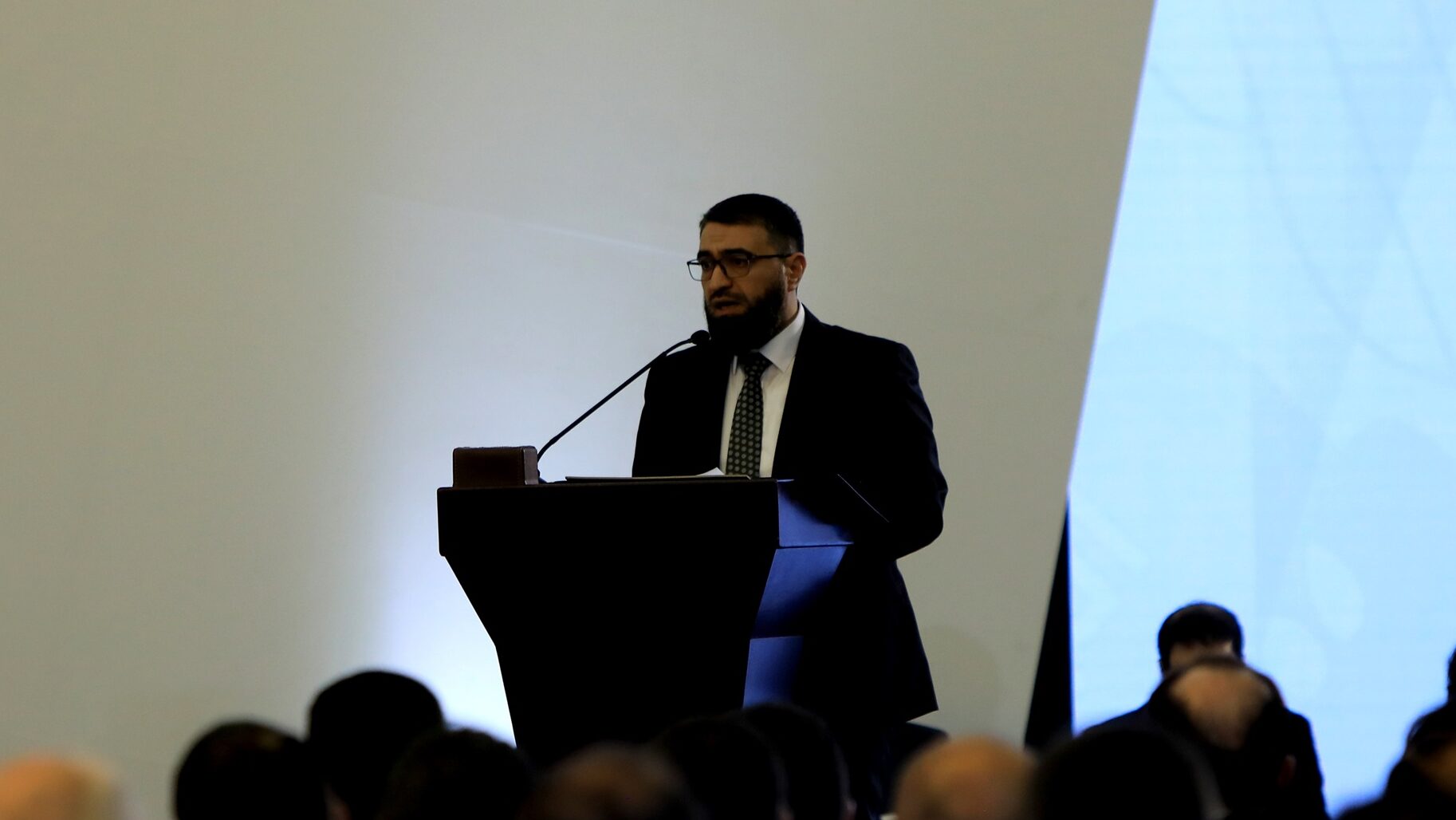Exclusive: Syrian Justice Minister Tells TML ‘Coordination With US-Led Coalition Can Be Lawful Under Shariah’
In an interview with The Media Line, Mazhar al-Wais says limited, interest-based cooperation that preserves sovereignty can support Syria’s fight against the Islamic State
[DAMASCUS] Syrian Justice Minister Dr. Mazhar al-Wais said in an interview with The Media Line that coordination between the Syrian state and the US-led international coalition against the Islamic State (IS) can be lawful under Islamic Shariah if it follows Shariah policy principles and serves the public interest. He cautioned against confusing “loyalty” with “legitimate dealings.”
Islamic law, he explained, is a comprehensive system derived from the Quran and the Sunnah—the recorded example, sayings, and actions of the Prophet Muhammad—that governs worship, transactions, ethics, and social behavior, aiming to achieve justice, mercy, and the common good. A fatwa, he said, is a formal legal opinion issued by a qualified scholar who applies these sources to specific cases. While a Shariah ruling expresses God’s command, a fatwa interprets that command in real-world circumstances through evidence-based reasoning.
Al-Wais emphasized that Islamic law distinguishes between loyalty and practical dealings, stating, “Not every political or security coordination is considered loyalty,” and urging people to base their judgments on the nature and objectives of an act rather than emotion or haste.
Not every political or security coordination is considered loyalty
He described Syria’s ties with the coalition as limited to security and information sharing for counterterrorism, with no subordination or loss of sovereignty, adding that such cooperation serves Syria’s higher national interest against IS.
The minister said Syrian fighting factions were the first to confront IS and to reject its ideology. Overlapping operations with coalition strikes, he explained, do not indicate an alliance but rather shared interests in fighting a common enemy.
Give the gift of hope
We practice what we preach:
accurate, fearless journalism. But we can't do it alone.
- On the ground in Gaza, Syria, Israel, Egypt, Pakistan, and more
- Our program trained more than 100 journalists
- Calling out fake news and reporting real facts
- On the ground in Gaza, Syria, Israel, Egypt, Pakistan, and more
- Our program trained more than 100 journalists
- Calling out fake news and reporting real facts
Join us.
Support The Media Line. Save democracy.
Al-Wais argued that IS’s emergence opened the door to major-power involvement in the region and called for policies to be evaluated by their results. He cited earlier fatwas that permitted temporary coordination to avert greater harm, referencing Operation Euphrates Shield, the 2016 Turkish military campaign in northern Syria to drive IS fighters from the border and restrain Kurdish territorial expansion.
He stressed that the Syrian government alone holds the authority to protect its citizens and territory from terrorism, saying coordination with the coalition occurs under strict conditions to preserve national independence and prevent renewed foreign interference.
Sheikh Ahmad Anwar of the Syrian Ministry of Religious Endowments told The Media Line that international cooperation is guided by legitimate interest, provided it does not compromise fundamental principles or support falsehood. Coordination against a common aggressor like IS, he said, “is permissible from the perspective of repelling the aggressor, provided that the upper hand remains for Muslims and that no greater harm results from it.”
Shariah policy is based on considering outcomes, and that restricted cooperation is not considered a rejected alliance as long as it is within the framework of achieving public security and protecting people from Islamic State aggression
Anwar added that “Shariah policy is based on considering outcomes, and that restricted cooperation is not considered a rejected alliance as long as it is within the framework of achieving public security and protecting people from Islamic State aggression.”
This discussion comes as the US-led coalition continues its campaign against IS cells in northern and eastern Syria, while Damascus works to reassert authority in areas reclaimed from the group.
IS declared a so-called caliphate in 2014 and lost most of its territory, yet it continues to operate in rural pockets—keeping security coordination one of Syria’s most sensitive political issues.
Al-Wais concluded that the state must balance benefits and harms when assessing national interests. He urged caution in issuing fatwas and warned against interpretations that distort both Shariah and Syria’s national position.
Syria, he said, is emerging from a devastating war and remains home to a diverse mix of religions and sects, making rigid application of purely religious legal systems delicate. He stressed that Syria operates under a civil legal framework protecting both majority and minority rights while staying consistent with Islamic principles, reflecting the state’s inclusive character and commitment to national unity under the rule of law.



